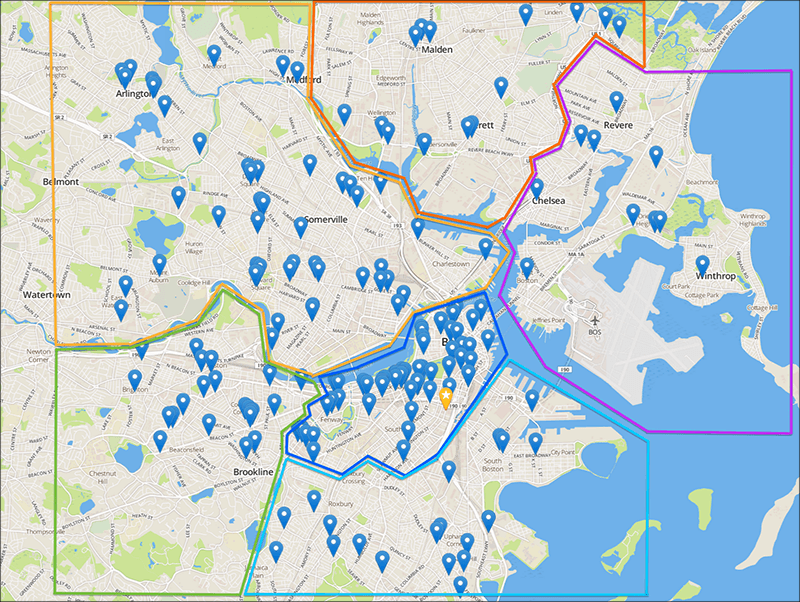Businesses that are looking to cut routing distances and costs will inevitably consider this question. Companies want to find ways to scale while saving time and fuel, but might not know how to do this. That’s where route optimization comes in.
Route optimization is a process used to plan service and delivery routes. This is performed in a way that ensures efficiency, consistency, and cost-effectiveness.
In layman’s terms, the system is meant to complete deliveries and services in a way that’s quick and inexpensive, all while factoring existing constraints.
Businesses that want to resolve their routing issue might refer to it as a pain (or something more colorful). Salespeople have spent over a century looking for ways to resolve this issue, which led to the coined term Travelling Salesman Problem.
The problem with working alone
Most people who seek route optimization as a solution will attempt manual route planning. The ones who try to solve routing problems on their own soon find the process to be time-consuming and mentally draining.
When more variables are added to the orders, the complexity of the process increases exponentially. This makes manual planning nearly impossible to perform and leaves more room for error.
For these reasons, planning routes on one’s own can be like solving a math problem: the more complicated it gets, the more one needs a calculator – or some other technology – to help them out.
Routing software makes it simple
Route optimization software is designed to quickly geocode anywhere from 1 to over 1,000 orders or tasks, route them, and then assign them to drivers.
The software’s built-in algorithm helps users save time, money and fuel by planning the most efficient routes. The software does this each time, no matter how much information it’s given.
A more sophisticated program will enable users to track the movements of drivers in real-time, as well as to follow the completion of tasks or deliveries.
Ultimately, businesses seek routing solutions when their logistics issues become too difficult to manage manually, or when overseeing a mobile workforce gets too overwhelming.
With the help of a route optimization program, users not only can plan the quickest and most direct routes with the push of a button, but also can have any number of parameters factored into the routing, including:
- time windows
- date restrictions
- vehicle capacities (size, attributes, layout, etc.)
- drivers’ hours & constraints
- number of stops and distances between them
- duration of stops
These are critical logistics issues that businesses with a mobile workforce must confront. The system simplifies route planning so that companies can streamline their work and delivery schedules.
With the right routing software system, users immediately notice a dramatic improvement in their scheduling. The program accommodates thousands of tasks and orders, regardless of the constraints that exist around either the schedule or the drivers’ abilities. Users can balance workloads, if necessary, and they can make plans for both pickup and delivery.
OptimoRoute goes a step further
In addition to the capabilities listed above, OptimoRoute can simplify its users’ schedules with other advanced features. This software supports long-term weekly itineraries, multi-day routes, and allows customers to track a worker’s whereabouts.
This is done with the help of advanced tools, such as Live Tracking ETA and Realtime Order Tracking . To top it all off, communication is carried out more clearly with the help of a mobile app to relay information to all parties and keep everyone informed.
When the benefits of these features are realized, companies discover that they’re able to focus more time and resources on scaling their business, rather than on planning routes and on driving.
What’s more, the software increases the chances of drivers getting to each of their destinations on time, all while decreasing the number of people required for the workload.
The result of this is happier customers and therefore better businesses. The software is able to make numerous configurations based on the data users give it, and then quickly calculate shorter, cheaper routes.
Users are able to see a return on investment shortly after adopting suitable route optimization software, which explains why such programs are rapidly growing in popularity.
This article originally appeared on optimoroute.com

















